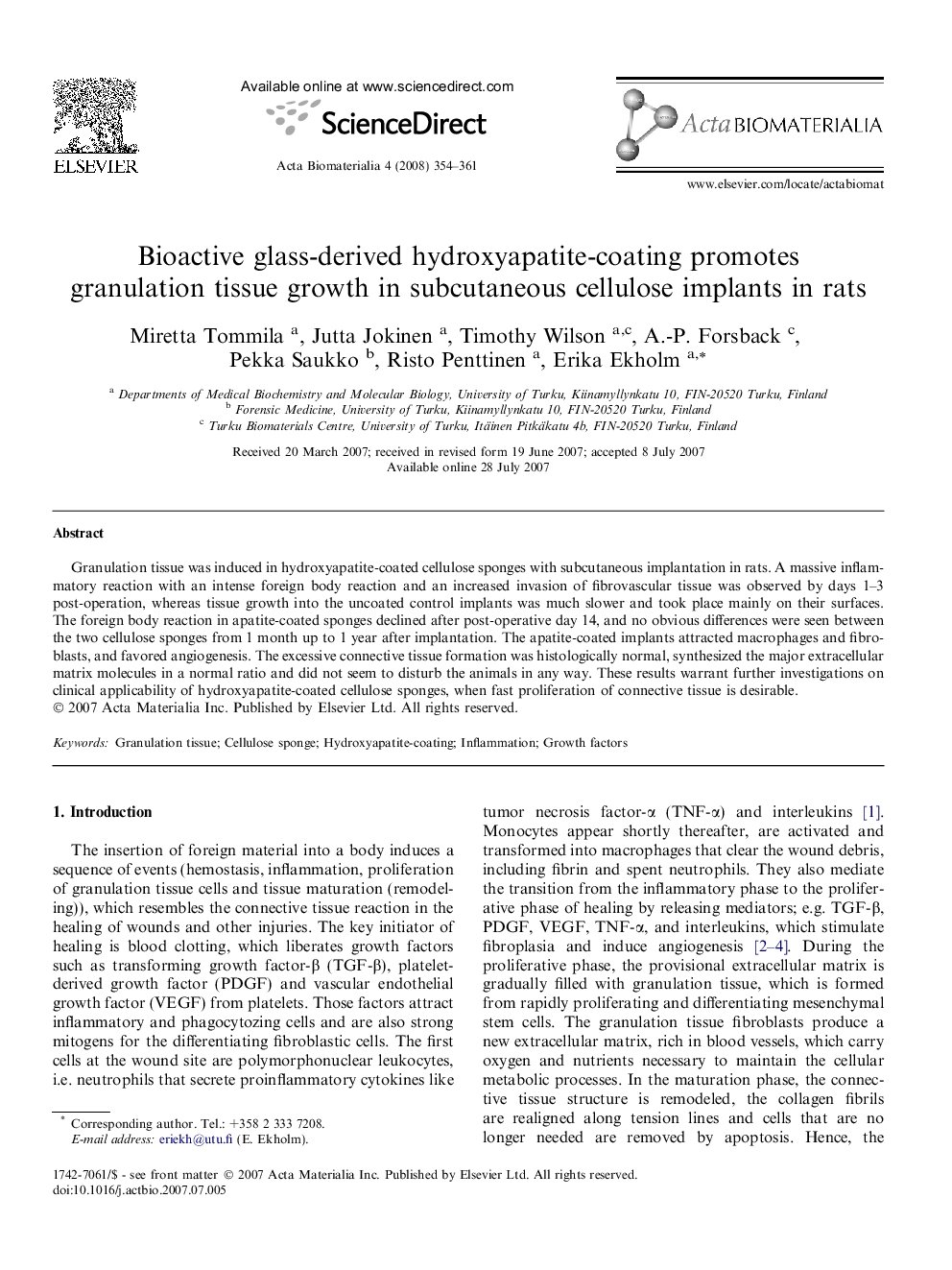| Article ID | Journal | Published Year | Pages | File Type |
|---|---|---|---|---|
| 1845 | Acta Biomaterialia | 2008 | 8 Pages |
Granulation tissue was induced in hydroxyapatite-coated cellulose sponges with subcutaneous implantation in rats. A massive inflammatory reaction with an intense foreign body reaction and an increased invasion of fibrovascular tissue was observed by days 1–3 post-operation, whereas tissue growth into the uncoated control implants was much slower and took place mainly on their surfaces. The foreign body reaction in apatite-coated sponges declined after post-operative day 14, and no obvious differences were seen between the two cellulose sponges from 1 month up to 1 year after implantation. The apatite-coated implants attracted macrophages and fibroblasts, and favored angiogenesis. The excessive connective tissue formation was histologically normal, synthesized the major extracellular matrix molecules in a normal ratio and did not seem to disturb the animals in any way. These results warrant further investigations on clinical applicability of hydroxyapatite-coated cellulose sponges, when fast proliferation of connective tissue is desirable.
